Related Research Articles

Alan Curtis Kay is an American computer scientist best known for his pioneering work on object-oriented programming and windowing graphical user interface (GUI) design. At Xerox PARC he led the design and development of the first modern windowed computer desktop interface. There he also led the development of the influential object-oriented programming language Smalltalk, both personally designing most of the early versions of the language and coining the term "object-oriented." He has been elected a Fellow of the American Academy of Arts and Sciences, the National Academy of Engineering, and the Royal Society of Arts. He received the Turing award in 2003.
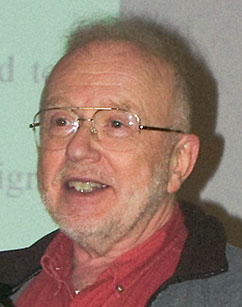
David Lorge Parnas is a Canadian early pioneer of software engineering, who developed the concept of information hiding in modular programming, which is an important element of object-oriented programming today. He is also noted for his advocacy of precise documentation.

Jack Joseph Dongarra is an American computer scientist and mathematician. He is a University Distinguished Professor of Computer Science in the Electrical Engineering and Computer Science Department at the University of Tennessee. He holds the position of a Distinguished Research Staff member in the Computer Science and Mathematics Division at Oak Ridge National Laboratory, Turing Fellowship in the School of Mathematics at the University of Manchester, and is an adjunct professor and teacher in the Computer Science Department at Rice University. He served as a faculty fellow at the Texas A&M University Institute for Advanced Study (2014–2018). Dongarra is the founding director of the Innovative Computing Laboratory at the University of Tennessee. He was the recipient of the Turing Award in 2021.

Alan Richard Bundy is a professor at the School of Informatics at the University of Edinburgh, known for his contributions to automated reasoning, especially to proof planning, the use of meta-level reasoning to guide proof search.
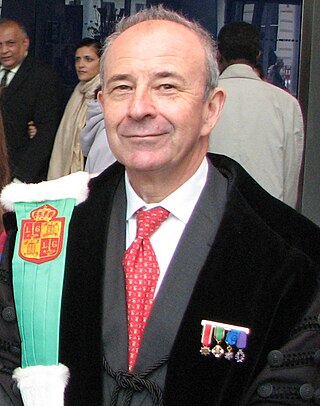
Sami Erol Gelenbe, a Turkish and French computer scientist, electronic engineer and applied mathematician, pioneered the field of Computer System and Network Performance. Currently Professor in the Institute of Theoretical and Applied Informatics of the Polish Academy of Sciences, he is also a Visiting Professor at King's College London, Associate Researcher in the I3S Laboratory, and the Abraham de Moivre Laboratory. Fellow of several National Academies, he Chairs the Informatics Section of Academia Europaea since 2023. His previous Professorial Chairs include the University of Liège (1974-1979), University Paris-Saclay (1979-1986), University Paris Descartes (1986-2005), NJIT (1991–93), ECE Chair at Duke University (1993-1998), University Chair Professor and Director of EECS, University of Central Florida (1998-2003), and Dennis Gabor Professor and Head of Intelligent Systems and Networks, Imperial College (2003-2019).
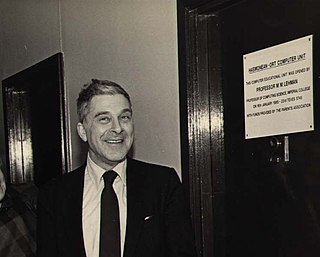
Meir "Manny" Lehman, FREng was a professor in the School of Computing Science at Middlesex University. From 1972 to 2002 he was a Professor and Head of the Computing Department at Imperial College London. His research contributions include the early realisation of the software evolution phenomenon and the eponymous Lehman's laws of software evolution.

Annie Antón is an academic and researcher in the fields of computer science, mathematical logic, and bioinformatics.
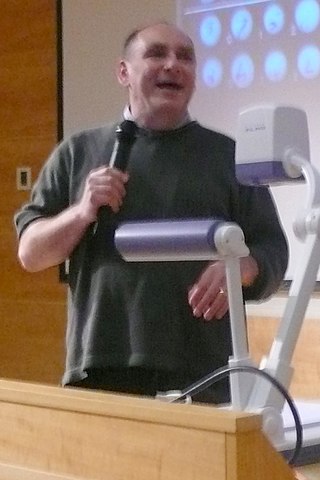
Jonathan Andrew Crowcroft is the Marconi Professor of Communications Systems in the Department of Computer Science and Technology, University of Cambridge, a Visiting Professor at the Department of Computing at Imperial College London, and the chair of the programme committee at the Alan Turing Institute.
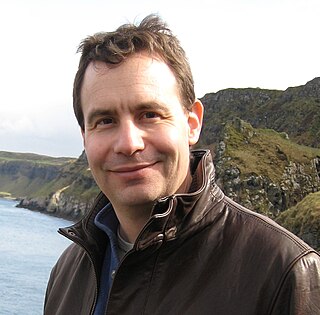
Blaine Alexander Price is a professor of Computing at The Open University in the United Kingdom.
Lero, the Science Foundation Ireland Research Centre for Software, Ireland, is a world-leading Science Foundation Ireland (SFI) research centre. It was established in 2005 as an SFI Centre for Science Engineering and Technology (CSET), being one of nine such centres established by the Irish Government in various areas of science and engineering.

Sir Anthony Charles Wiener Finkelstein is a British engineer and computer scientist. He is the President of City, University of London. He was Chief Scientific Adviser for National Security to HM Government until 2021.
Carl E. Landwehr is an American computer scientist whose research focus is cybersecurity and trustworthy computing. His work has addressed the identification of software vulnerabilities toward high assurance software development, architectures for intrusion-tolerant and multilevel security systems, token-based authentication, and system evaluation and certification methods. In an invited essay for ACSAC 2013, he proposed the idea of developing building codes for building software that is used in critical infrastructures. He has organized an NSF funded workshop to develop a building code and research agenda for medical device software security. The final committee report is available through the Cyber Security and Policy Institute of the George Washington University, and the building code through the IEEE.
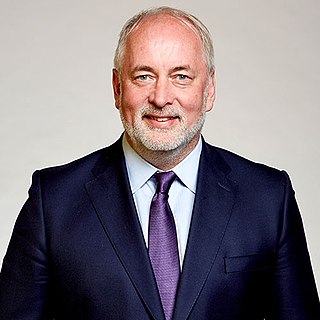
Nicholas Robert Jennings is a British computer scientist and the current Vice-Chancellor and President of Loughborough University. He was previously the Vice-Provost for Research and Enterprise at Imperial College London, the UK's first Regius Professor of Computer Science, and the inaugural Chief Scientific Adviser to the UK Government on National Security. His research covers the areas of AI, autonomous systems, agent-based computing and cybersecurity.
Alexander L. Wolf is an American computer scientist known for his research in software engineering, distributed systems, and computer networking. He is credited, along with his collaborators, with introducing the modern study of software architecture, content-based publish/subscribe messaging, content-based networking, automated process discovery, and the software deployment lifecycle. Wolf's 1985 Ph.D. dissertation developed language features for expressing a module's import/export specifications and the notion of multiple interfaces for a type, both of which are now common in modern computer programming languages.
Axel van Lamsweerde is a Belgian computer scientist and Professor of Computing Science at the Universite catholique de Louvain, known for his work on requirements engineering and the development of the KAOS goal-oriented modeling language.
Klaus Pohl is a German computer scientist and Professor for Software Systems Engineering at the University of Duisburg-Essen, mainly known for his work in Requirements Engineering and Software product line engineering.

Gail C. Murphy is a Canadian computer scientist who specializes in software engineering and knowledge worker productivity. Murphy is a full professor in the Department of Computer Science at the University of British Columbia, Vancouver. In 2016, she was named Associate Vice President Research pro tem and assumed the role of Vice-President, Research & Innovation on August 14, 2017. Murphy is co-founder and was Chief Scientist at Tasktop Technologies Incorporated.
Sushil Jajodia is an American computer scientist known for his work on cyber security and privacy, databases, and distributed systems.
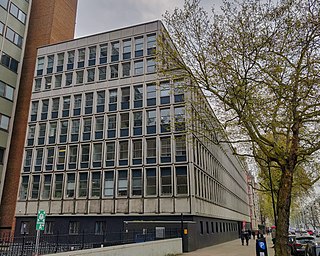
The Department of Computing (DoC) is the computer science department at Imperial College London. The department has around 50 academic staff and 1000 students, with around 600 studying undergraduate courses, 200 PhD students, and 200 MSc students. The department is predominantly based in the Huxley Building, 180 Queen's Gate, which it shares with the Maths department, however also has space in the William Penney Laboratory and in the Aeronautics and Chemical Engineering Extension. The department ranks 7th in the Times Higher Education 2020 subject world rankings.
Elham Kashefi is a Professor of Computer Science and Personal Chair in quantum computing at the School of Informatics at the University of Edinburgh, and a Centre national de la recherche scientifique (CNRS) researcher at the Sorbonne University. Her work has included contributions to quantum cryptography, verification of quantum computing, and cloud quantum computing.
References
- ↑ "Bashar Nuseibeh". University College London.
- ↑ Keane, Jonathan. "Lero is trying to re-shape how we think about software and its social impact". Lero.
- ↑ "15 architects building the data-driven future". Silicon Republic. 18 December 2017.
- ↑ "UL researchers in new €5 million FinTech research programme". University of Limerick. 21 September 2018.
- ↑ "New Fellows 2023". Royal Academy of Engineering. 20 September 2023. Retrieved 20 September 2023.
- ↑ "Admittance Day 2021". Royal Irish Academy. 21 May 2021. Retrieved 26 May 2021.
- ↑ "SIGSOFT - ACM Special Interest Group on Software Engineering".